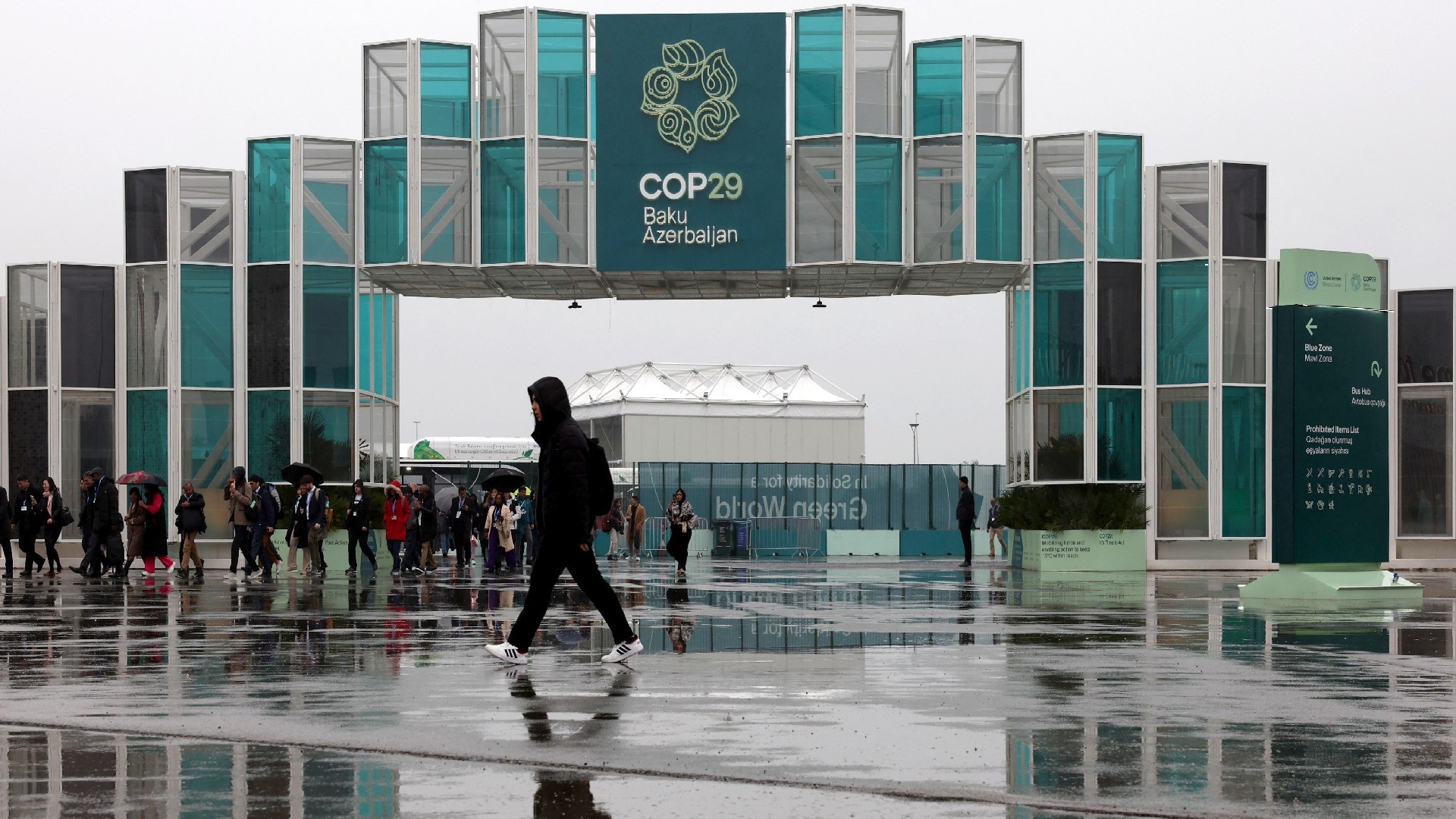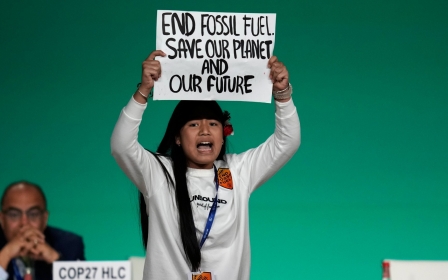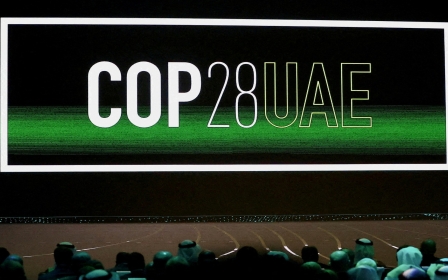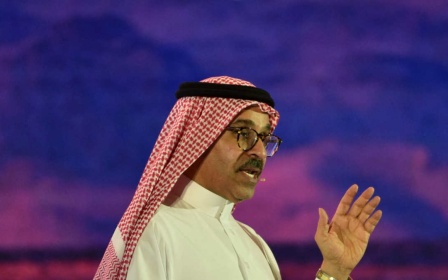Cop29: Saudi Arabia fights to derail pledge to transition away from fossil fuels

With days to go before Cop29’s conclusion, climate negotiations are becoming increasingly fraught as Saudi Arabia's delegates are working to undermine efforts to renew last year’s historic pledge to transition away from fossil fuels, according to negotiators.
Despite the kingdom agreeing to Cop28’s pledge to “transition away from fossil fuels in energy systems”, diplomats have said that Saudi Arabia's efforts at this year's conference in Baku to derail talks around the transition are unprecedented.
Cop28’s transition pledge stipulates that the transition must be in line with the 2015 Paris Agreement, where countries agreed to keep try and prevent global temperatures rising by over 1.5 degrees Celsius.
“For the number-one petrostate in the world, that’s quite a threat,” Andreas Sieber, the associate director of policy and campaigns at anti-fossil fuel group 350.org, told Middle East Eye.
Hanen Keskes of Greenpeace MENA said Saudi Arabia was reportedly blocking the Mitigation Work Programme (MWP), a channel of the talks focused on the shift away from fossil fuels. “There’s been generally very slow progress across the different tracks," she said.
New MEE newsletter: Jerusalem Dispatch
Sign up to get the latest insights and analysis on Israel-Palestine, alongside Turkey Unpacked and other MEE newsletters
Sieber added: “We have seen a really strong draft text here… that spoke about the transition from fossil fuels into renewable energy and they just blocked that completely.”
According to Sieber, Saudi Arabia argued that the text "rewrote" the Paris Agreement, which stipulates that countries’ nationally determined contributions (NDCs) - efforts by each country to reduce national emissions - are voluntary.
“But that’s complete bullshit, given the introductory paragraph to the mitigation programme clearly says it is non-punitive,” Sieber said.
“Saudi Arabia does not want to have this discussion, and does not want countries to make progress as that would threaten their current economic model.”
Many other blockers
According to Greenpeace's Keskes, delegates stalled discussions by invoking a rule that pushes an agenda item to the next session, arguing that targets for mitigation cannot be set without the finances to implement it.
“It’s also very important to highlight that there are many other blockers, especially around finance,” Keskes said.
“Developed countries haven’t even put forward an amount that they’re willing to start negotiating on.”
At this year’s conference, discussions around climate finance, funding paid by wealthy countries to developing ones to help them tackle climate change, have exposed deep divides.
'Developed countries haven’t even put forward an amount that they’re willing to start negotiating on'
- Hanen Keskes, Greenpeace MENA
Developed countries have largely resisted setting a numerical target, while developing country groups, including Saudi Arabia, have proposed targets of $1 trillion to $1.3 trillion a year.
Under the Paris Agreement, governments agreed that a new climate finance goal would be set by 2025.
“Finance negotiations must happen in order to unlock mitigation,” Keskes said.
“Developing countries that cannot actually afford to implement their nationally determined contributions cannot be expected to come up with all these ambitious plans without any commitment from developed countries to provide the funding to support that.”
Along with other developing countries, Saudi Arabia has also argued on behalf of the Arab group that the new finance goal, known as the "new collective quantified goal" (NCQG), needs to be composed of public funds rather than private financing.
“They say they want money for the transition, and then in the mitigation room, they go ahead and say they don’t even want an investment dialogue,” Sieber said.
“I think the amount to which they are destructive in the room shows how desperate they are."
Middle East Eye delivers independent and unrivalled coverage and analysis of the Middle East, North Africa and beyond. To learn more about republishing this content and the associated fees, please fill out this form. More about MEE can be found here.




